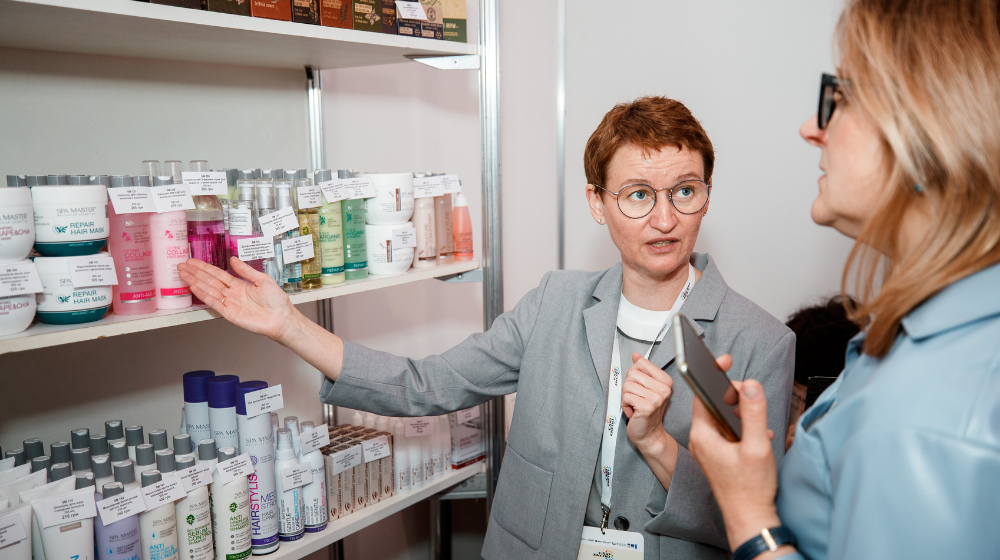Russia's full-scale war against Ukraine has had an impact on all aspects of Ukrainians' lives. In particular, their economic welfare. By the end of November, at least five million people had lost their jobs, according to the Ukrainian Ministry of Economy. Moreover, Russian aggression has destroyed many businesses. This labor market situation especially affects the incidence of domestic violence. Indeed, economic dependence can often be a barrier to women's escape from toxic relationships.
The United Nations Population Fund (UNFPA) runs the "VONA" career hub project as part of its program to respond and prevent gender-based violence. It helps women who have experienced or are at risk of domestic/gender-based violence to become economically independent.
Currently, seven offline VONA Hubs in Ukraine help Ukrainian women to achieve their career goals, taking into account their individual needs and characteristics. The project's specialists provide psychological support and vocational training, facilitate rapid employment for each client, and advise them on how to develop their businesses. VONA hubs also advise on developing social entrepreneurship alongside business, in order not only to become economically successful but also to help vulnerable people.
Many IDP women have recovered from the loss of their businesses and are not afraid to start them again. In this article, UNFPA shares the stories of their journey and their courage.
This project is funded by USAID's Bureau for Humanitarian Assistance (BHA) and the government of the United Kingdom.
Anastasia from Zaporizhzhia opened a healthy food store
After the start of Russia's full-scale war against Ukraine, Anastasia Smykova, a resident of Zaporizhzhya, had to move to Lviv with her nine-year-old son. It was not an easy decision, she says. In the first days of the Russian invasion, she hoped it would all be over soon and that she would not have to leave her home. But when the Russian troops captured the Zaporizhzhya nuclear power plant in Enerhodar, 52 kilometers away from the city, Anastasia was left with no other choice.
"When the enemy entered ZNPP, I feared a catastrophe," says the Zaporizhzhya resident.
In Lviv, Anastasia was able to find short-term part-time work, but the family was not in a position to stay there. So in August 2022, Anastasiia and her son returned to Zaporizhzhya.
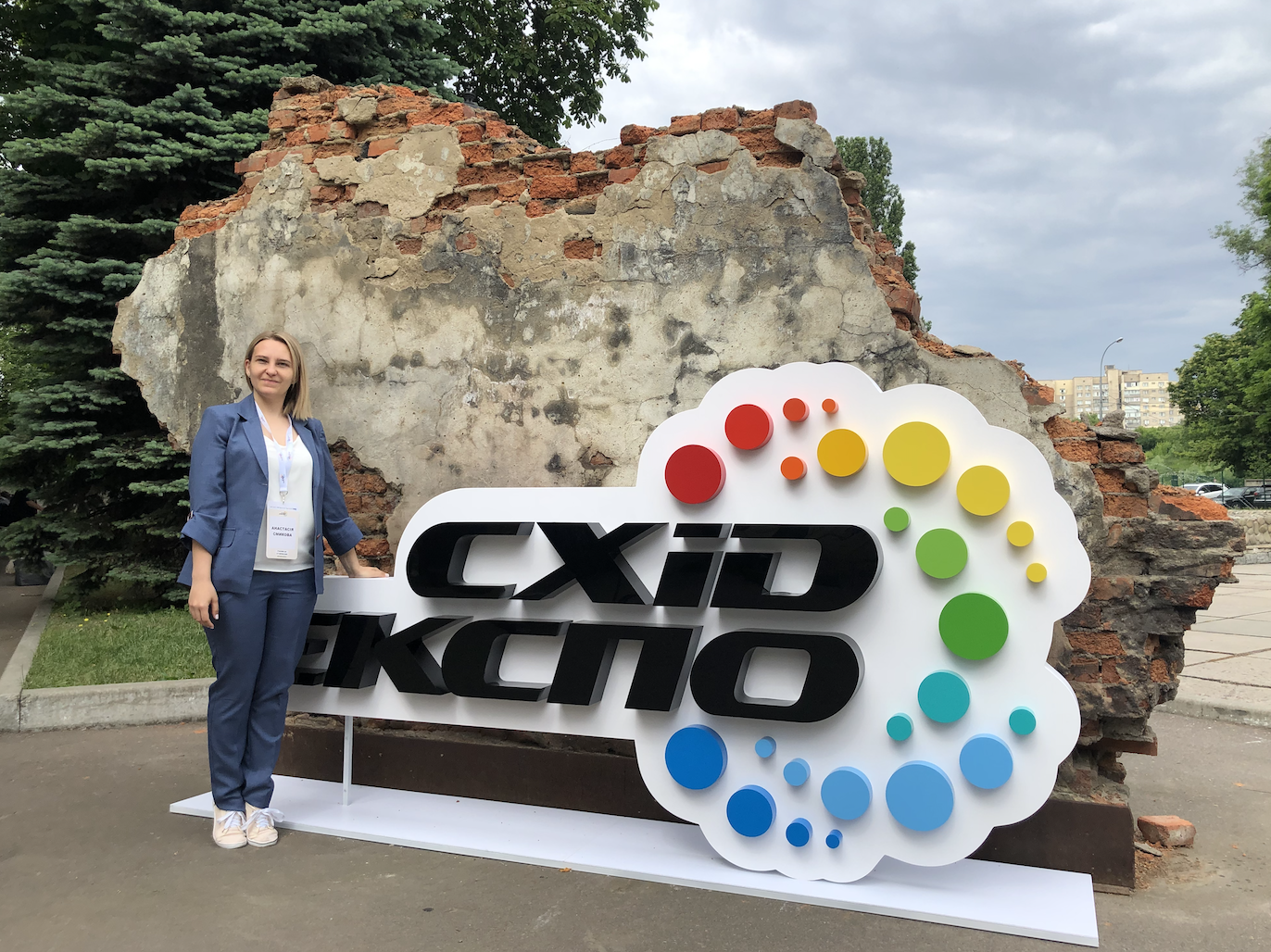
"It was very scary because Lviv is relatively quiet and here there are regular shell hits," says Anastasiia. She was desperate, worried about shelling, and unable to work. But later, despite a failed attempt with her previous business, an online nut shop, she decided to launch a new business and in October 2022 she started producing healthy sweets - pastilles and frips. She did this after attending a CV writing course run by the VONA Hub in Zaporizhzhia.
"I did not expect to be accepted because I am not an IDP. But I was accepted and it was a turning point. After the training, it was like my hands were raised. I started developing the idea of selling pastilles and other healthy treats," says Anastasiia.
At the moment, all of the shop's equipment is located in her home, and she sources the raw materials for production from her garden. "There's a good demand, but we're still short of capacity," she tells us, adding that she doesn't plan to stop there. A career counselor at the Zaporizhzhia branch of the VONA hub is helping her with her business development.
"I want to get a micro-grant to buy equipment to expand and scale up my delicatessen business, so together with the women career hub counselor we are writing a business project," she says.
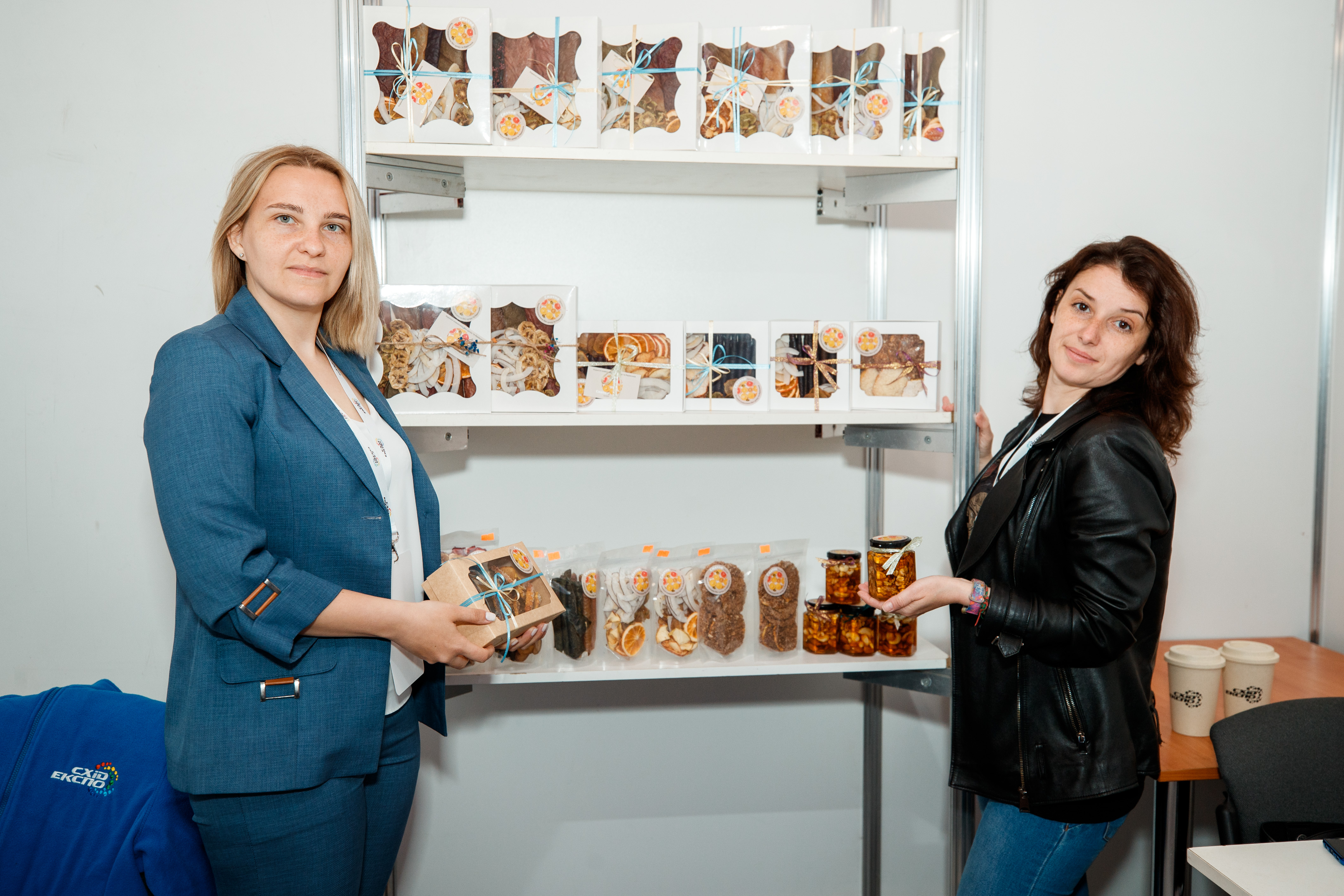
She is also a student at the VONA Startup School, where she studies business strategies on Instagram, calculating the profitability of her own business, and strategic models of innovative entrepreneurship, including startups and crowdfunding.
Anastasiia advises all women who are thinking about starting their own business but are hesitant not to waste time, as "economic realization is very important for everyone".
"I haven't always had good times. I had everything, and when I got divorced, I lost everything. The most important thing is not to give up. I did it, so every woman can do it," the entrepreneur claims.
Surviving in Mariupol and starting a new life: Olesia Lazebnyk's story
Until 24 February 2022, Olesia Lazebnyk from Mariupol had a life beyond her wildest dreams. She had a happy family, two successful businesses, and plenty of room to grow. But the outbreak of Russia's full-scale invasion of Ukraine and the subsequent occupation of the city threatened not only her family's well-being but also her life. From the first minutes of the Russian invasion in the early hours of 24 February, the fighting in Mariupol began. The woman remembers that at the time she paid little attention to the sounds of bombs, as she lived in a part of the city near the contact line.
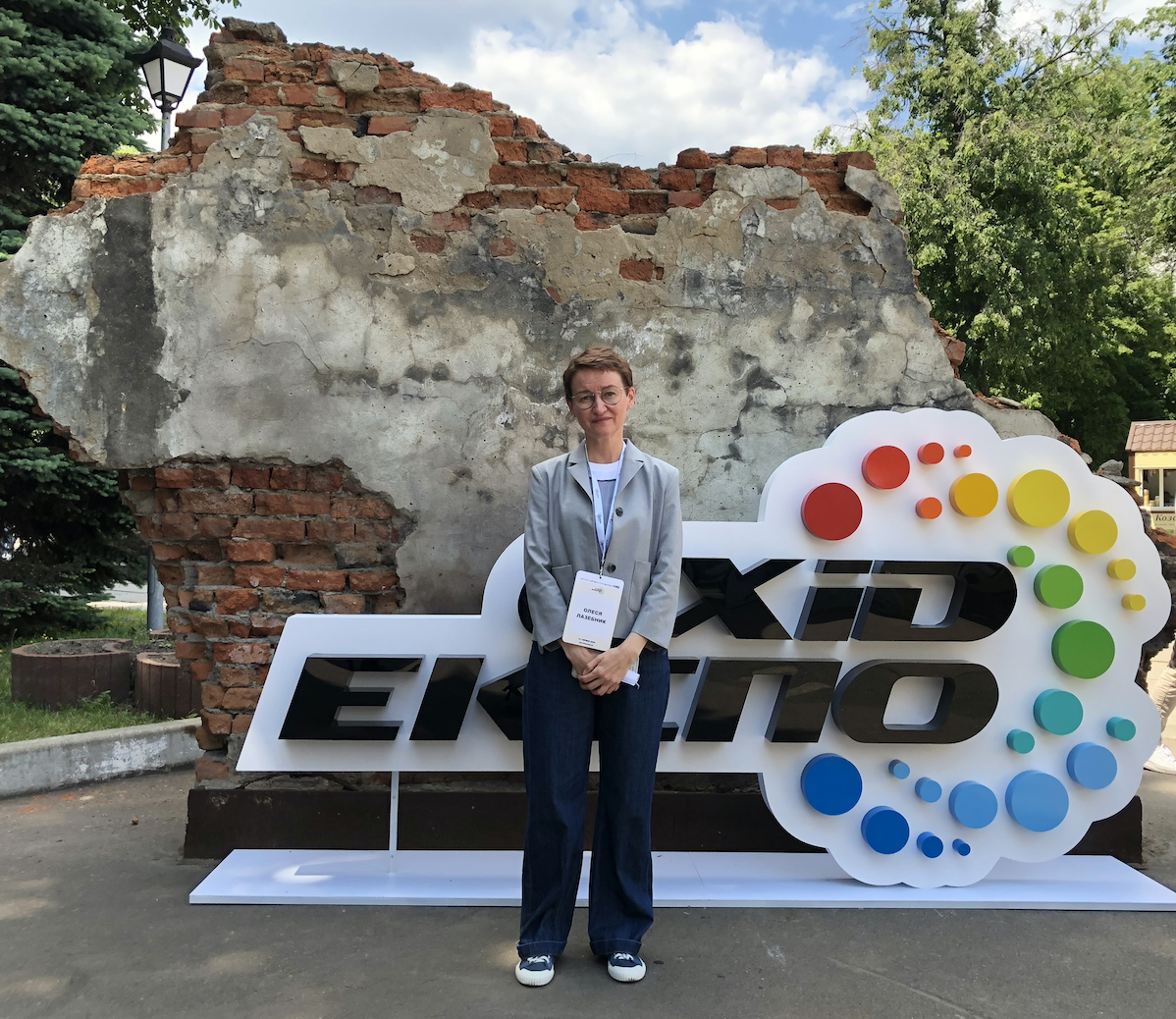
"The war started in 2014. And during that time we got used to the shelling. So at first, I could not believe that the offensive was really happening," says Lazebnyk. But once she realized the gravity of the situation, the woman's family - husband, 13-year-old daughter, sister, and mother - moved with their dog to a culinary studio in the center of Mariupol that was rented out for various events and masterclasses. That day was the last time Olesia was at home.
"The studio was in the basement, four meters underground. And we thought it would be the safest place to be. And it turned out to be. The studio saved us," says Olesia. In addition, because cooking classes were held there regularly, the family had a large supply of food, which helped them survive in Mariupol, as it was life-threatening to go out due to the constant attacks on the city.
According to Olesia, they treated the days in the shelter as a game, so as not to traumatize the children more. "We told them: Today will be this or that stage in the game... The youngest child, a girl, was 8 years old, and the oldest, Raiechka, was 85," Olesia says ironically, adding that the experience in Mariupol only proved that "if you are a positive person, you will be surrounded by cool people in any circumstances".
On the first day of full-scale war, one of the family's cars came under fire, shattering the windows and puncturing the wheels. But having a full tank of fuel was a blessing in Mariupol at the time. When it was no longer possible to stay in the city and food was running out, the Lazebnyks decided to leave.
"We repaired the wheels. We didn't take much. We just took a frying pan, an axe, and some boiled potatoes. And just imagine - the car is running, there are no windows. And you're all black because you haven't had a bath in a month," the woman said.
On their way to Kyiv-controlled Zaporizhzhya, the family passed through 26 Russian checkpoints. At each one, she says, they were stripped and the car searched. From Zaporizhia, the family moved to her husband's parents' home in Vyshneve, Kyiv region.
"After all this shock, we realized that we had spent all our money on the businesses that remained in Mariupol. My biggest regret is that I will have nothing to pass on to my grandchildren. After all, we built the business so that it would be for them," says Olesya. In addition to the culinary studio, the family has owned a coffee shop in Mariupol since 2015.
She couldn't find a job at the new place, as she wasn't hired for lower positions due to her extensive experience in management positions and her age. So in March 2023, Lazebnyk decided to start her own business. She turned to the Kyiv-based VONA Hub for help.
"I was told at the VONA Hub that when your life has started again, you have to launch something new. I decided to do just that. I have always been interested in distribution, we used to sell New Year gifts for large organizations. It just so happened that I am now selling professional hair cosmetics, which is completely new for me," says the entrepreneur.
Working with the Spanish professional products brand Lendan, she focuses on the target audience of hairdressers and professional cosmetics retailers.
"We have a warehouse of cosmetics, we collect applications from potentially interested stores, and then we meet offline to show the range of products. This is completely new to me," says Olesia. The company currently has 250 customers who have bought products from the warehouse at least once. Her husband and sister help her with the business, as, she says, she does not yet have the resources to hire workers.
But Lazebnyk has ambitious plans, and her career counselor is helping her to realize them. "Together with her, we have turned some of my 'disadvantages' into advantages'.
"I thought my age - 47 - was a weakness because when I started my business at the age of 20, I was not afraid of anything. And at 47 it is very difficult to start from scratch," says Olesya.
"Together with the Hub's career counselor, we 'put my age problem on the shelf' and saw many advantages. For example, my child is already an adult. That means I can concentrate on my business. And so I gradually realized that my weakness was not a weakness at all.
Individual and group work with a psychologist helped her cope with the trauma of war. "For me, the loss of my home was very difficult. Not materially, because you can earn everything. We had a lot of 'anchors' built up over many years. Living in Mariupol, I realized that I had several commercial premises that I could rent out. So I was not afraid of getting old. But the war uprooted everything," she says. Thanks to psychological support, Lazebnyk was able to overcome her fear of losing everything again.
Olesya also benefited from VONA Hub training on writing a business plan, making a first impression, managing social media, and communicating with toxic people.
"I really liked the project's focus on women's economic independence. Every woman has to choose how she wants to build her life. I have always been self-reliant. But thanks to the Hub, I started to value myself more. It was here that I was shown that my weaknesses were in fact my strengths," says the entrepreneur.
In the future, she wants to expand the company's product range to include facial cosmetics and create her brand. Olesya claims that she is not yet ready to return to Mariupol, even after its liberation. "It will not be the Mariupol I was in love with. And it is important for me to be able to earn money there, while there is no such opportunity," she explains.
A second start in life: the story of a double displaced
It was the second time 41-year-old Anna Nalcha from Mariupol had to leave her home. In 2014, the occupation of Donetsk forced her family to move to the city of Mary on the coast of the Sea of Azov, where they opened a chain of six cafes and two restaurants. On 24 February 2022, the Nalchy family was forced to flee their home again.
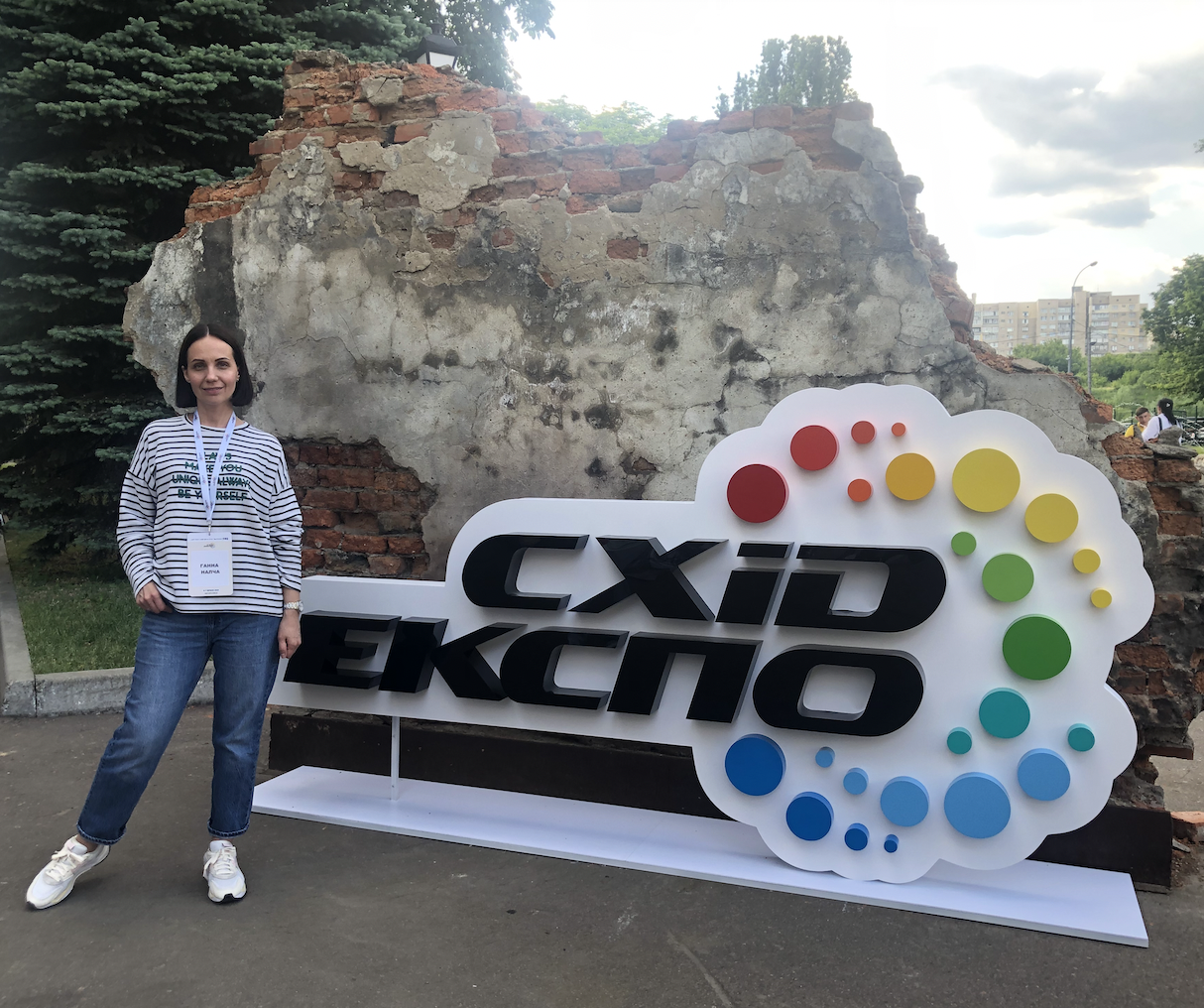
"We left with only the essentials because we were sure we'd be back soon and thought it wouldn't take long," says Hanna.
When they left the city, the entrepreneurs paid the salaries of all the employees in their businesses and distributed "hundreds of kilos of milk, coffee, tea, and sugar" to the volunteers. After spending 1.5 months in Uman, Cherkasy region, Hanna and her children went to visit friends in Spain. "We took a break and thought about what to do next."
In late June, Anna and her children rejoined her husband in Kyiv, and in March this year, the family moved to Lutsk, where a friend helped them open a scooter rental franchise.
"My friend actually offered us a fishing rod instead of a fish. We are grateful he gave us the opportunity, not money," she says. According to Anna, they were attracted to Lutsk not only because of its good infrastructure and logistics but also because of its relative safety. "We wanted to choose a city where we would not have to move or flee for a third time," she explains. Also, according to her, the scooter rental business in Lutsk is not competitive.
In addition to courses and an internship with Jet, she contacted the local VONA hub, which helped her get in touch with local authorities. "We were given contacts - in fact, a bridge, a helping hand to get us one step closer to starting this business in Lutsk," says the entrepreneur.
According to her, the Lutsk City Council was very supportive of the IDPs' idea and signed a memorandum with the couple allowing the service to operate in the city. Anna is in charge of accounting and recruiting the team, while her husband is in charge of all operational activities. Also, the couple tries to care about social entrepreneurship: sometimes Hanna and her husband organize special holidays for teenagers, with sweets and free skiing under the supervision of instructors.
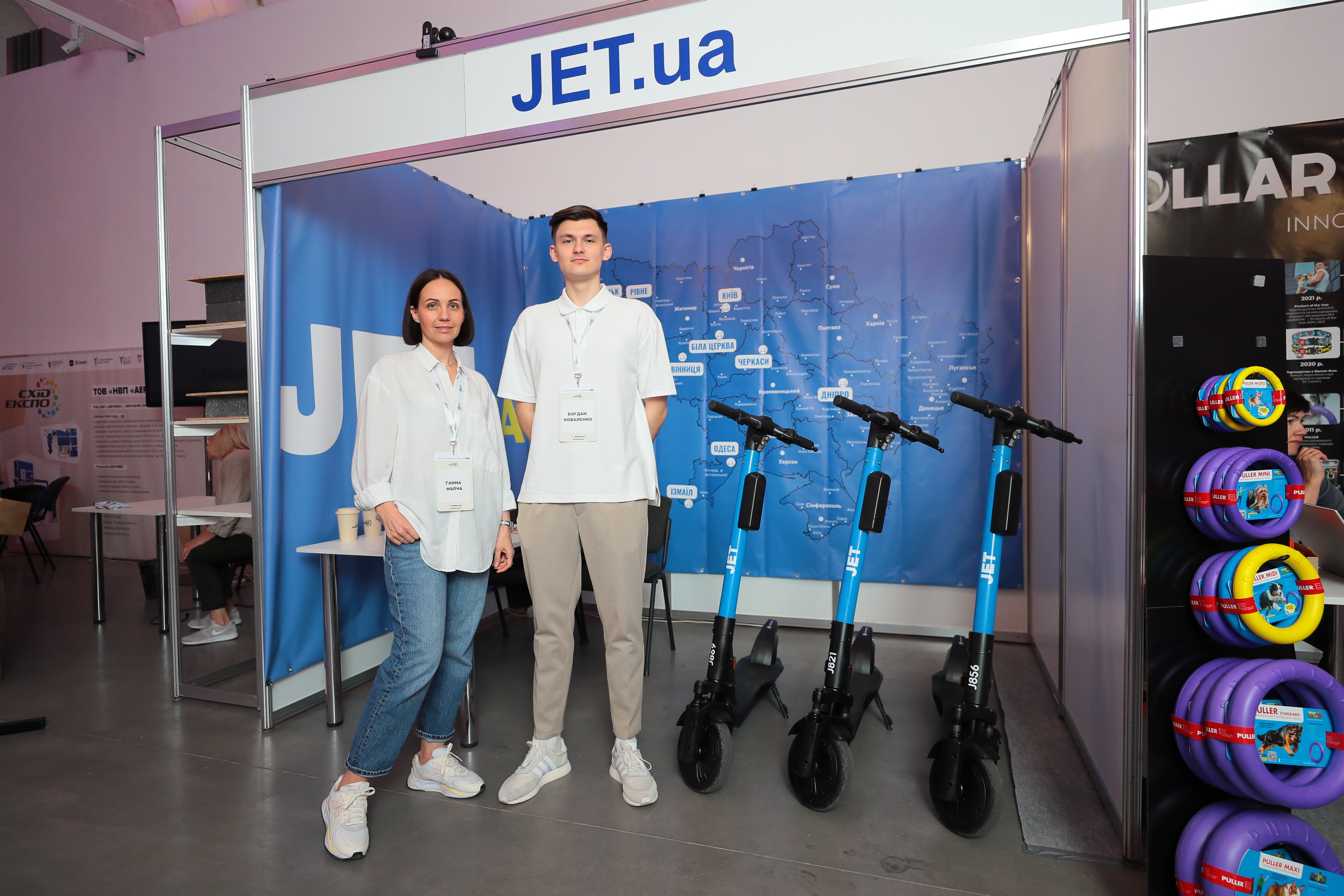
"My husband and I have a principle in our lives: 'Give back what you have earned'. Back in Mariupol, we used to help orphanages. Now we have much less opportunity to do so. But we still do it," says Nalcha.
Once the service is up and running in Lutsk, the couple plans to expand the business to other cities. After all, as Nalcha says, she and her husband are not inclined to stop.
From hobby to business: how a woman from Kharkiv makes money making unique decorations
"I like creating beautiful things," is how Kharkiv resident Svitlana Teslenko sums up her passion for interior design. The 53-year-old, who was a schoolteacher before Russia's full-scale war in Ukraine broke out, has now turned her artistic hobby into a business. The war was the catalyst for this decision.
When the Russian offensive began, her hometown – Kharkiv came under fire at once. Although her decorating partner urged her to leave the city, Svitlana decided to stay.
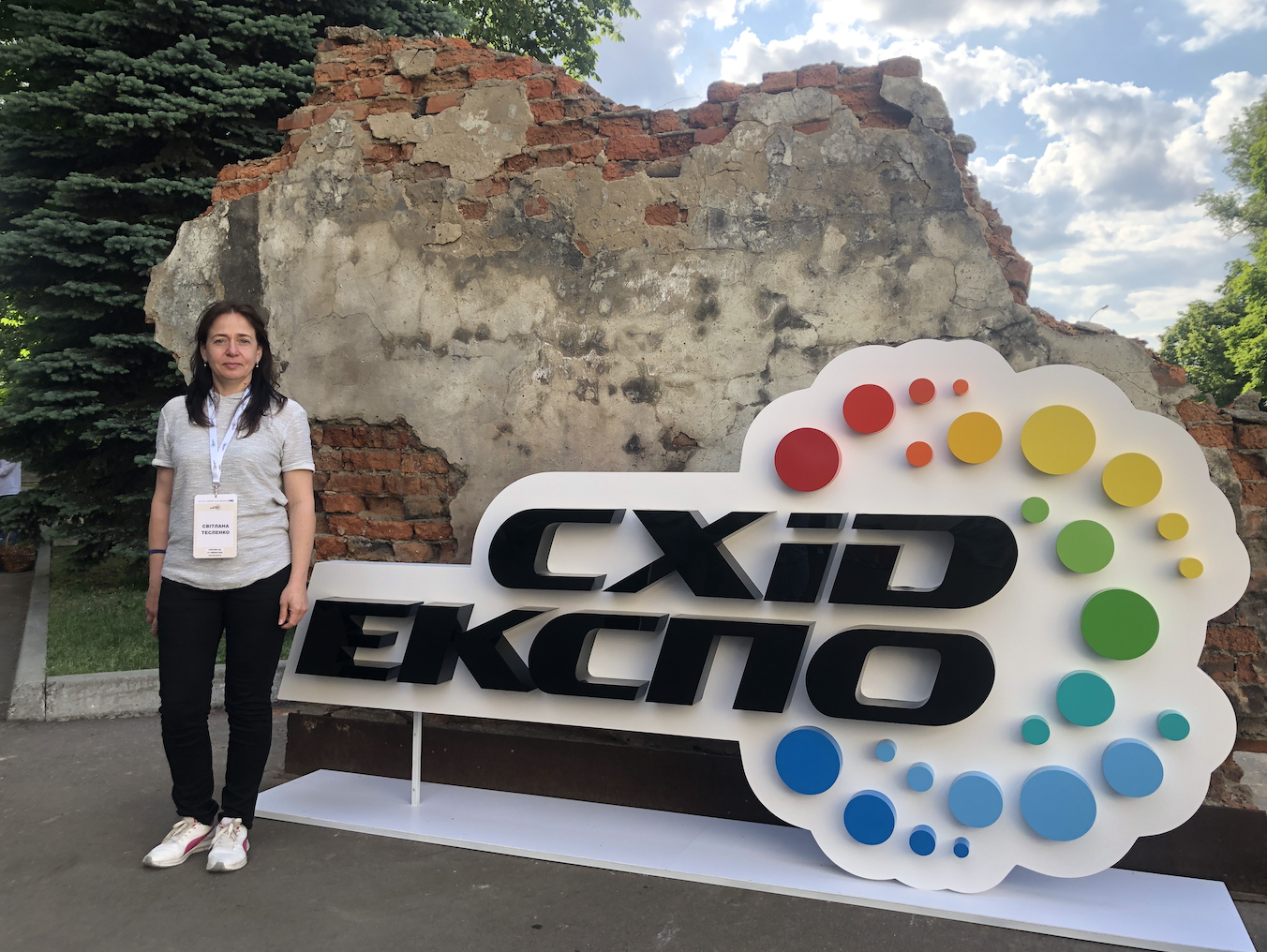
"I lived in a more or less quiet neighborhood in Kharkiv. I didn't have a car, and at the beginning of the war it was impossible to leave the station by train because of the crowds," she says. She changed her mind after a terrifying experience of an air raid.
"A plane flew over my house, I heard explosions from shells, and then I saw many dead people around the house. Then I realized that if I went to the shop to buy bread one day, I might not come back," says Svitlana.
At the beginning of April, she left Kharkiv and moved to Uzhhorod to her colleague.
"It was hard to leave, it was a pity to leave everything behind. I left with my son, who is 13 years old. My daughter stayed in Kharkiv with her husband and little son, and they were there for another six months. Then they came to me in Uzhhorod. My daughter recovered for another week - she was afraid of thunder and all loud noises," the woman says. According to her, once, when a pigeon suddenly crashed into her window, her daughter fell to the floor in fear and her legs gave out.
When Svitlana left for Uzhhorod, she hoped she wouldn't stay there for long. But after her daughter and grandson arrived, she realized that the family needed to stay in a safe place as long as possible, so she set up a decorating business here.
"We make designer lighting (chandeliers) and decor. The decor can be a mirror, a panel, or something like that. We make it on demand. So the advantage of this business is the individual approach. It's not going to be repeated," says the entrepreneur.
According to her, at first, she did not expect that unique products for interior decoration would be relevant during the war. However, after a restaurant from Dnipro ordered huge chandeliers, she changed her mind. At the same time, the businesswoman says that ordinary people, not companies, turn to her most.
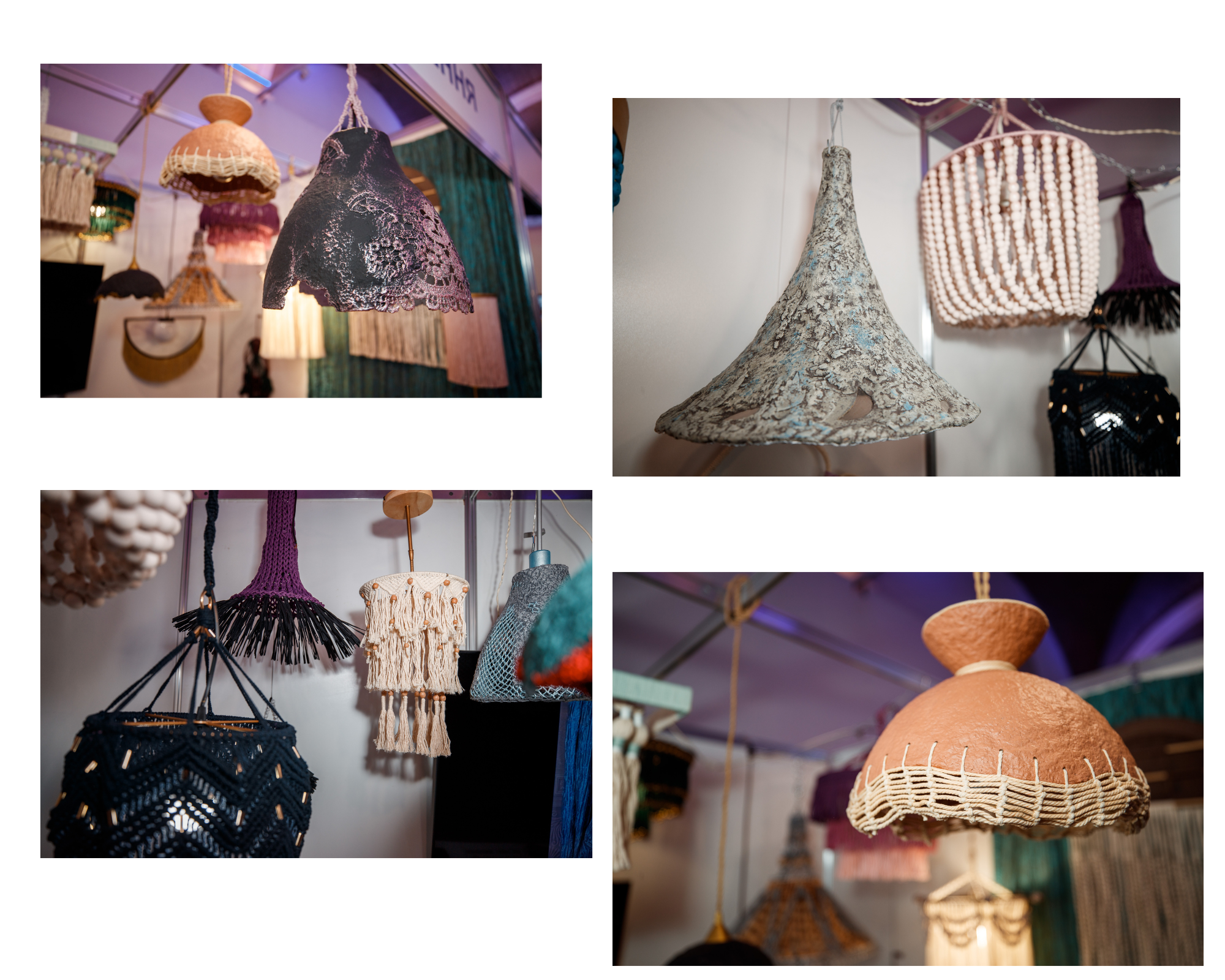
"I'm glad people try to make themselves happy during the war," says Svitlana.
The entrepreneur learns the rules of doing business at VONA Hub courses. "In January 2023, I took a course that taught me how to register and report as a sole proprietor. It was dynamic. The teacher was a professional," says Svitlana. "We asked what we wanted to know and she explained everything individually. If she couldn't answer immediately, she wrote down the question, prepared it at home, and then answered it. I really liked this individual and professional approach."
As business picks up, Svitlana and her partner plan to register their own company. For now, they pay their taxes through their colleagues' company. To attract new customers, they also plan to continue attending business events and exhibitions. After the end of the war, Svitlana has plans to return home to Kharkiv.
"Kharkiv has a soul. I came here a few months ago to pick up my cat and spent a few days at home. And you know... Kharkiv is about my own walls, my own dishes, my own things. I didn't want to leave. On the other hand, I was afraid. But what if a shell comes?", Sviltana says.
"The war for the second time is too much to bear" – a businesswoman from Dobropillia
The start of Russia's full-scale war against Ukraine came as a shock to Larysa Polishchuk, a resident of Dobropillia in the Donetsk region. She could not believe it was happening for the second time.
"I thought it couldn't be again, it was too much. After all, we have been at war since 2014," says Larysa. But on 25 February, the Kharkiv cadet corps, where her godson studies, was attacked. She then took him to Zaporizhia with his mother but returned home herself.
Even after the evacuation order and the closure of government offices, petrol stations, shops, banks, and pharmacies, Larysa was reluctant to leave her home.
"It was hard to get ready to leave, and the hardest part was trying to decide. All my friends have left. One shop closes and the other ones do. Everyone was like, 'Aren't you goin'?' And then everyone's gone. You walk through the town and Dobropillia is completely empty," she tells us about the first month of the war.
She had to decide to evacuate because of an emergency - Larysa had a hypertensive crisis and there was no way to get medical help in the town. So the family left for Lviv in mid-April, taking with them some of the equipment from the sewing shop she had run for 22 years.
"Before the war, we made tulle and curtains. We have also developed our own line of bed linen - linen and with embroidery. The machinery is new and innovative. If we hadn't taken it out, it would have been damaged. The warehouse was hit by a bomb. All the windows and doors were smashed," she says.
In Lviv, Larysa had to start from scratch. She had to re-register her business, hire people and train them. According to the woman, the director of a local factory was very supportive and rented the premises at a lower-than-market price. "Then the Lviv City Council helped us by giving us a voucher for the rent. That was a support for us as well," she says.
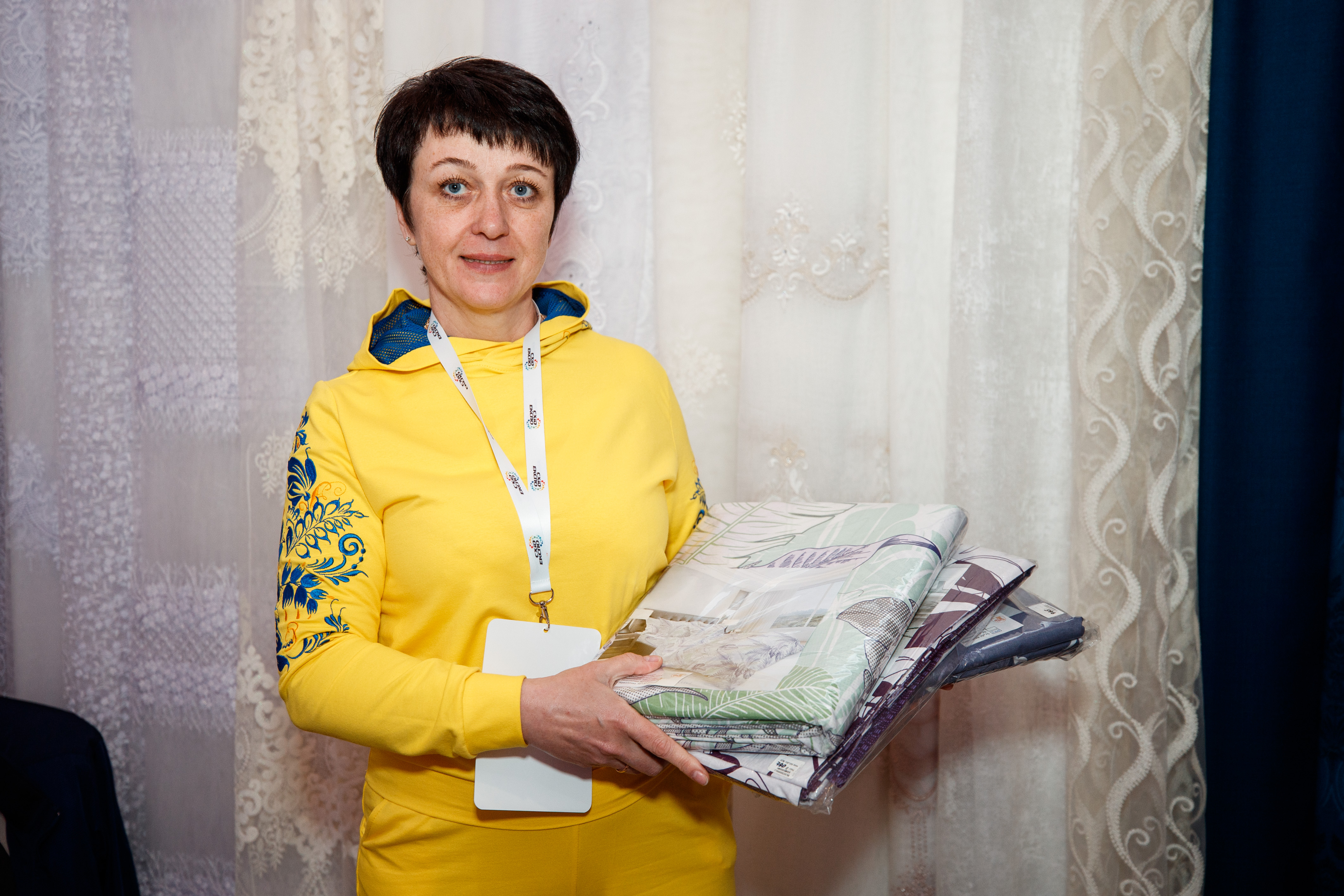
She claims that it was very difficult to start again because she had built her business from scratch - from a small company with a hundred dollars in capital to fulfilling large orders, including from the state. The VONA Hub in Lviv helped her to overcome her stress.
"It was hard. I was crying all the time. A friend recommended that I turn to the VONA Hub, where I got psychological support. It made me feel that I wasn't alone. I was reminded that I am a confident woman, that I can do anything, and that I am going to be successful. And that helped me develop my business," says the woman.
In addition to psychological support, the career counselor at the VONA Hub has helped her to expand her product range and develop her branding. Larysa is currently working on the development of a line of embroidered clothes called "family look" - for mothers and daughters, fathers and sons.
"During the war, many families are separated, at a distance. Mothers and children, fathers and children rarely see each other. This line will remind us: when the war is over, there will be a return home. The families will be reunited," says the businesswoman, adding that it is much easier to deal with this situation if there is support.
According to her, the value of the VONA Hub in her life is that the experts help her with really effective advice. "They don't say unnecessary things here. They tell you everything you need to know and hear right now. How they are doing it, I don't know. Because when they say it, it's exactly what you need," Larysa says, surprised.
Owning a business is about development and freedom for this woman. In the eighth month of the war, she decided to move some of her production facilities back to Dobropillia, despite its proximity to the front line. There was a demand among the locals for high-quality textiles, including curtains to comply with the light camouflage regime. Larysa couldn't help but support them: "People require some kind of joy, some kind of happiness. They come and say, whatever happens, everything should be beautiful. They're philosophical about it - doing repair, restore, and moving on with their lives."

